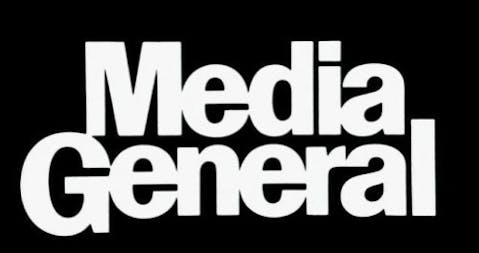Warren Buffett has always loved newsprint. One of his most famous and successful investments was in The Washington Post Company (NYSE:WPO). While many people are aware of Jeff Bezos’ decision to purchase the company’s flagship newspaper for $250 million, fewer people know about Buffett’s successful investment in the paper’s former parent company. The Oracle of Omaha has seen his investment in The Washington Post Company increase at a 65% CAGR for the past nine years. Growth like that would turn a $1 investment into $90.65 in just under a decade, the kind of returns we all dream of.
Investors should watch what moves Buffett, and his right-hand man Charlie Munger, have made in the news distribution field. In 2012 Buffett bought Media General, Inc. (NYSE:MEG)‘s newspaper assets for $142 million. Meanwhile, Charlie Munger has taken up the role of chairman at the Daily Journal Corporation (NASDAQ:DJCO). It would appear that the two men most responsible for the meteoric rise of Berkshire Hathaway are investing in media, so should we follow their lead?

Is what’s left of the Post worth buying?
Despite the stock’s enormous rise, circulation for its flagship newspaper has declined by 38.6% during the past decade. The operating profit for the paper was $109 million in 2002, and in 2012 it lost $53.7 million. Those factors undoubtedly contributed to the parent company’s desire to rid itself of this ailing asset.
Yet the stock still rose spectacularly. The namesake paper only makes up a small piece of the company’s pie–its education segment generates the bulk of its revenues.
That segment includes Kaplan educational products and services, which range from test preparation to online courses to physical college campuses. Most of the revenues from the company’s biggest segment come courtesy of the federal government and are used to issue student loans. The default rate on the company’s student loans is 16.5%.
Between 2010 and 2012 revenues from the education segment dropped by 21.7%. International sales have shown solid growth for the segment, but domestic revenues (which comprise 65.2% of the segment’s total) not so much.
Not unexpectedly, the company’s television broadcasting operations had a banner year in 2012. Nearly $60 million in operating income was generated from political campaigns and the Olympics. However, if you ignore the profit from those two special events in 2012, the operating profit from the company’s broadcasting operations has declined by 20% since 2009.
The Washington Post Company (NYSE:WPO) is a $4.3 billion dollar company with a strong balance sheet. However, revenues and profits are declining in more than one of the company’s core operations. The company’s 3 year average P/E of 24.5 is too expensive for me.
Product of a merger between television stations
In May of 2012 Berkshire Hathaway paid $142 million for the newspaper assets of Media General, Inc. (NYSE:MEG). Initially, Berkshire loaned Media General $400 million and provided the company with a $45 million line of credit. Berkshire has since loaned $600 million to Media General at steep 10% plus interest rates. In exchange, Berkshire received warrants that it later exercised to become a 17% owner of Media General.
What is Media General, Inc. (NYSE:MEG) without newspapers? Its revenue now comes primarily from 18 television stations in Florida, Alabama, Ohio, and North Carolina.
This company has a debt problem. Over the past three years Media General, Inc. (NYSE:MEG) has paid more in interest charges than it has generated in net income. Its equity is negative $206.4 million. The company’s debt to Berkshire with the ridiculous interest rates has since been refinanced–the interest rate on the company’s debt is now 4.25%.
In addition to escaping the Berkshire loans, Media General, Inc. (NYSE:MEG) wanted to refinance in order to complete a merger with another operator of television stations. It seems to me Media General isn’t generating much in profits and has a ton of debt. Betting on the successful merger of two operators of a combined 31 television stations pales in comparison with the opportunity in the Daily Journal Corporation (NASDAQ:DJCO).
A small cap company with huge potential
The Daily Journal Corporation (NASDAQ:DJCO) is a $217.7 million dollar company. It publishes newspapers in California and Arizona, and the California Lawyer magazine. The company’s namesake papers, The Los Angeles Daily Journal and the San Francisco Daily Journal, are over a century old and are more focused on law than most papers. Munger’s extensive background in law and love of classical things probably drew him to this company.
I was able to find out that Munger has been the chairman of the company since at least 1995. Since that year an investment in the company’s stock has grown at a 12.35% CAGR. Over 18 years that would turn one dollar into more than 8.
The company has no debt. In addition to newspapers and magazines, The Daily Journal Corporation (NASDAQ:DJCO) supplies case software to people in the field of criminal justice to make them more efficient. A cool idea, but the company is still very pricey relative to its net income. The company’s regular business isn’t what makes it look like a great investment.
It also has a $120.3 portfolio of investments, 93.4% of which are stocks. The company’s portfolio of cash, cash equivalents, bonds and marketable securities has grown at a 19% CAGR for the past three years. The company bought $20.96 million worth of marketable securities in 2012. A legendary investor is using this small company as a vehicle for investments in common stocks, and vehicles like that are not a common occurrence.
Foolish final thoughts
The Washington Post Company, to me, does not appear to be a good investment. It is struggling in more than one area and has a P/.E ratio of over 90. A decent amount of its revenue comes from the federal government to issue student loans. That is not the type of business I want to own.
Buffett bought a stake in Media General. Perhaps he knows something that I don’t, but the company looks like a bad buy. Buffett issued the company debt with ludicrous interest rates, so he has made his money. But buying in now is betting on a successful merger between two operators of television stations, with a pile of debt between them.
The Daily Journal Corporation (NASDAQ:DJCO) looks like a blessing from the investing gods. Charlie Munger, patron saint of compounding wealth, is at the helm of this small cap company. He is growing the company’s investment portfolio at an incredible pace. It would be foolish to assume that this company will be the next Berkshire Hathaway, but one can dream.
The article Will Buffett And Munger’s Media Investments Make You Rich? originally appeared on Fool.com and is written by Ryan Palmer.
Fool blogger Ryan Palmer has no position in any of the stocks mentioned in this article. The Motley Fool has no position in any of the stocks mentioned.
Copyright © 1995 – 2013 The Motley Fool, LLC. All rights reserved. The Motley Fool has a disclosure policy.






